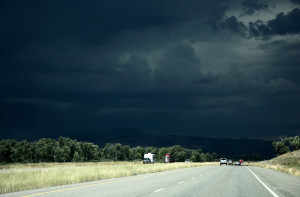
For many readers, of fiction such as The Hunger Games and the Divergent series, the distinction between dystopia, apocalypse and post-apocalyptic fiction can be confusing. And, to be honest, the lines can be blurred between the three genres as well as sometimes having them able to exist together within the same novel! So what are the distinct differences? Let’s break it down:
Dystopia
This is the opposite to the term utopia which means a perfect place, or the assumption of a perfect existence. It is usually also assumed to be an imagined or idealistic state and not a physical place. The term was first used in the novel called Uptopia, written by Sir Thomas Moore and published in 1516.
 If utopia is quite literally paradise, then dystopia can be thought to be a place that is hell on earth. While this definition can be true, dystopia as a genre is quite often used to describe a place that appears perfect on the surface but is bad underneath. Sometimes this corrupt existence is known but suppressed (The Capitol in Suzanne Collins’ The Hunger Games is a perfect example of this). In other instances, the world appears to all intents to be perfect, but it is discovered as otherwise, quite often by the main character in the story.
If utopia is quite literally paradise, then dystopia can be thought to be a place that is hell on earth. While this definition can be true, dystopia as a genre is quite often used to describe a place that appears perfect on the surface but is bad underneath. Sometimes this corrupt existence is known but suppressed (The Capitol in Suzanne Collins’ The Hunger Games is a perfect example of this). In other instances, the world appears to all intents to be perfect, but it is discovered as otherwise, quite often by the main character in the story.
As of late I have heard a lot of people referring to AMC’s The Walking Dead as dystopia for adults. This TV series is set in a post-apocalyptic world that is indeed filled with horrors that, by nature, are the very opposite of a Utopian world, however, I would not consider it true dystopian. Without the appearance of an organised ruling body that seems perfect on the outside, this TV series falls neatly into the post-apocalyptic genre. While there are small factions of seemingly Uptopian communities (Woodbury, Terminus, etc), the ruling body needs to be more global than that to classify as true dystopia. If the TV series were set entirely within one of those communities, then, yes, the show would be considered dystopia, but these communities act as catalysts for story lines and plot development rather than the complete direction of the series.
Apocalyptic/Apocalypse
 Many novels you see in the genre of post-apocalyptic are actually apocalypse novels. The Stand by Stephen King is an example of this, his more recent novel, Under the Dome, also falls into the apocalyptic genre. For this category, you need a world that is in the midst of crumbling. There can be many reasons for this: famine, disease, medical mayhem, earthquakes & other natural disasters the Mayan calendar, religion & the end times, zombies, aliens, and so the list goes on. The main thing to be aware of is the fact that life as we currently know it is disappearing and the survivors have to cope with this as well as plan for the future ahead.
Many novels you see in the genre of post-apocalyptic are actually apocalypse novels. The Stand by Stephen King is an example of this, his more recent novel, Under the Dome, also falls into the apocalyptic genre. For this category, you need a world that is in the midst of crumbling. There can be many reasons for this: famine, disease, medical mayhem, earthquakes & other natural disasters the Mayan calendar, religion & the end times, zombies, aliens, and so the list goes on. The main thing to be aware of is the fact that life as we currently know it is disappearing and the survivors have to cope with this as well as plan for the future ahead.
Post Apocalyptic/Post-Apocalypse
 This genre is similar to the apocalyptic one, and sometimes it can even overlap. The Passage by Justin Cronin does this. His book starts as a post-apocalyptic adventure, but in parts we are taken back to the time of the apocalypse.
This genre is similar to the apocalyptic one, and sometimes it can even overlap. The Passage by Justin Cronin does this. His book starts as a post-apocalyptic adventure, but in parts we are taken back to the time of the apocalypse.
In the post-apocalyptic world, the life-changing event has occurred and human existence as we currently know it has drastically changed. This genre, however, is not interested in how people react to the cataclysmic events as they occur, but how people change and evolve as time goes on.
 Sometimes the post-apocalyptic world will be many years and generations into the future and this is quite often where the line between post-apocalyptic and dystopia blur. When this is the case, the world that we currently live in is quite often (but not always) seen by the post-apocalyptic characters as an utopian world. In other instances, the post-apocalyptic world will be newer and many of the characters in the story remember what life was like before the big change. They have memories of lost loved ones and things that they once had but no longer can have (ie. TV, McDonalds, the internet, etc). The Walking Dead comic series by Robert Kirkman is an excellent example of a newly post-apocalyptic world.
Sometimes the post-apocalyptic world will be many years and generations into the future and this is quite often where the line between post-apocalyptic and dystopia blur. When this is the case, the world that we currently live in is quite often (but not always) seen by the post-apocalyptic characters as an utopian world. In other instances, the post-apocalyptic world will be newer and many of the characters in the story remember what life was like before the big change. They have memories of lost loved ones and things that they once had but no longer can have (ie. TV, McDonalds, the internet, etc). The Walking Dead comic series by Robert Kirkman is an excellent example of a newly post-apocalyptic world.
Are They All Considered Horror?
 The short answer is: No. However, many of these books do indeed fall into the broader genre of horror. The Stand by Stephen King would certainly be considered a horror novel, where as a lot of the YA (young adult) dystopia would not be considered horror. The Giver by Lois Lowry is an example where it certainly isn’t horror. And it is probably thanks to the massive amounts of YA dystopia literature available at the moment that this genre has really come into its own. Twenty years ago, you would just go to the horror shelves and look there for these types of books.
The short answer is: No. However, many of these books do indeed fall into the broader genre of horror. The Stand by Stephen King would certainly be considered a horror novel, where as a lot of the YA (young adult) dystopia would not be considered horror. The Giver by Lois Lowry is an example where it certainly isn’t horror. And it is probably thanks to the massive amounts of YA dystopia literature available at the moment that this genre has really come into its own. Twenty years ago, you would just go to the horror shelves and look there for these types of books.
So, there you have it, the difference between the genres dystopia, apocalypse and post-apocalypse! Let me know if you think I got them right (or wrong) 😉
Sections of this post originally featured on Racheltsoumbakos.wordpress.com
